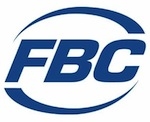
News
New simplified tax rules for quota and Goodwill assets
June 9, 2016 - A farm has many assets. Some are tangible, such as buildings and equipment, while others are intangible, such as milk quota and goodwill.
The federal budget this year announced new rules that affect intangible assets such as goodwill, licences, customer lists, incorporation costs, franchises and distribution rights. They will also directly affect quotas.
Currently, intangible assets are considered Eligible Capital Property and have 75 per cent of their value put into a pool that amortizes at 7 per cent a year.
However, the federal government introduced a new class of assets called the Class 14.1 pool.
With this new class, 100% of expenditures will be added to the pool.
For Eligible Capital Property acquired after January 1, a new depreciation rate of 5 per cent will be permitted on a declining balance, commonly known as the Capital Cost Allowance (CCA).
The rules that now apply to depreciable property, such as the “half-year rule,” recapture and capital gains, will also apply to the properties included in this new class, which makes the process more consistent across both classes.
Special rules will apply to expenditures that do not relate to a specific property of a business, such as those that were not acquired through purchase but grown inside the company.
Every business will be considered to have goodwill associated to it, even if no expenditures on goodwill have been made.
Expenditures that do not relate to a particular property will increase the capital cost of the business’s goodwill and, consequently, the balance of the Class 14.1 pool.
As with any depreciable property, if the intangible asset is sold, any proceeds greater than the original cost will be treated as a capital gain.
Any previously deducted Capital Cost Allowance will be recaptured to the extent that the receipt exceeds the balance in the Class 14.1 pool.
The existing intangible Cumulative Eligible Capital (CEC) pool balances will be transferred to the new Class 14.1 pool as of Jan. 1, including those of taxpayers whose taxation year straddles that date.
The opening balance of the Class 14.1 pool will be equal to the CEC balance on December 31.
The Capital Cost Allowance depreciation rate for property transferred to the Class 14.1 pool related to expenditures made before January 1, will be 7 per cent until 2027.
The rate for expenditures made after January 1 falls to 5 per cent.
Amounts received on the disposition of property after December 31, which relate to property acquired or expenditures made before January 1, will reduce the Class 14.1 pool at a 75 per cent rate of the proceeds from the disposed property.
Special rules for small businesses that allow a deduction will simplify the transition for:
Expenditures incurred before 2017, equal to the greater of $500 or the amount otherwise deductible for the year, for years that end before 2027
Computing income, for the first $3,000 of incorporation expenses
The changes are meant to simplify things; however, we suggest you seek the assistance of your accounting or tax specialist if these “simplified” new rules apply to you and they don’t seem all that simple.
FBC is Canada's Farm & Small Business Tax Specialist, providing tax accounting and bookkeeping services to over 20,000 farms and small businesses from Ontario to British Columbia. Our complete financial planning for farm and small business owners takes a long-term approach to address your specific needs at all stages of life and business, minimizing your taxes year after year. Year-round services include tax planning, tax optimization, business consulting and audit protection.
June 9, 2016 By FBC Tax Consultants
 A farm has many assets. Some are tangible
A farm has many assets. Some are tangible